The Chicago Tribune today has an in-depth article about the misuse of autism research in therapy:
In his letter, obtained by the Tribune, [Florida family physician Dr. Dan] Rossignol justified the unorthodox treatment in part by writing that "a recent study out of Johns Hopkins has shown that children with autism have evidence of neuroinflammation on autopsy and (cerebral spinal fluid) evaluations."
It was [Dr. Carlos] Pardo's study.
Rossignol did not mention that Pardo's team had written in its online primer, using capital letters for emphasis, that intravenous immunoglobulin "WOULD NOT HAVE a significant effect" on what they saw in the brains of people with autism.
"THERE IS NO indication for using anti-inflammatory medications in patients with autism," the team wrote.
There's a word for doctors who offer treatments to desperate people without any evidence that the treatments will work. Or, to put it another way, if it walks like a duck...
I have some experience dealing with the allure of long-shot treatments for diseases that no one actually understands. Fortunately my mother was a solidly rational person, so when she volunteered for an experimental treatment, she understood the possibility—one in three, in fact—that she would only get a placebo, and the bigger possibility that the drug wouldn't work anyway. And the experiment was conducted by an actual science team with actual experimental methods and an actual study-review board.
Quacks are dangerous because desperate people don't usually think rationally. Undergoing dangerous, not to mention costly, treatments that come from shaky foundations and incomplete research do far more harm than good. The hope these treatments bring has a cost that many families don't understand until, much later, they regain their rationality. Then they find that only the quacks have really benefitted.
From the Economist's Gulliver blog:
The Germans said in a letter to the Dubai-based carrier that under European law it was not allowed “to engage in price leadership” on routes from Germany to non-EU locations. Emirates, which condemned the decision as “commercially nonsensical”, responded by raising prices by 20% on some routes.
Andrew Parker of Emirates told the Financial Times, "We are adamant this is selective and clearly an attempt by Lufthansa [Germany's national carrier] to pursue Emirates versus a legitimate policy."
Yes, but on the other hand, it would not surprise me to learn that Emirates had priced the seats as a loss-leader to undercut its competitors, including Lufthansa. Regardless, this seems a good example of the African proverb, "When elephants wrestle, the grass suffers."
At this writing, a 7-day advance, Saturday-to-Thursday (discount) business class ticket from Frankfurt to Dubai was €2,245 on Emirates and €2,954 on Lufthansa. I can see why Lufthansa (and the German goverment) might suspect anti-competitive behavior...but still, raising prices for everyone doesn't seem sporting.
Of course we knew Bill O'Reilly didn't care about the Constitution, but it's refreshing to hear him admit it:
Andrew Sullivan has a recap of the top 30:
Palin lied when she repeatedly claimed to have said, "Thanks, but no thanks" to the Bridge to Nowhere; in fact, she openly campaigned for the federal project when running for governor.
Palin lied when she denied that Wasilla's police chief and librarian had been fired; in fact, both were given letters of termination the previous day.
Palin lied when she wrote in the NYT that a comprehensive review by Alaska wildlife officials showed that polar bears were not endangered; in fact, email correspondence between those scientists showed the opposite.
Palin lied when she claimed to be unaware of a turkey being slaughtered behind her during a filmed interview; in fact, the cameraman said she had picked the spot herself, while the slaughter was underway.
Palin lied when she denied having rejected federal stimulus money; in fact, she continued to accept and reject the funds several times.
And many, many more. This is the opposition party's de facto leader.
Mostly photos today, because I have an economics assignment due before I can get some desperately-needed sleep.
Today we did our Culture Dash (see the entry about the deliverable) through some of the same Dubai streets I walked just yesterday. Some highlights: first, Dubai Creek, with an abra (commuter flatboat) in the foreground and an Airbus 330 taking off in the background:
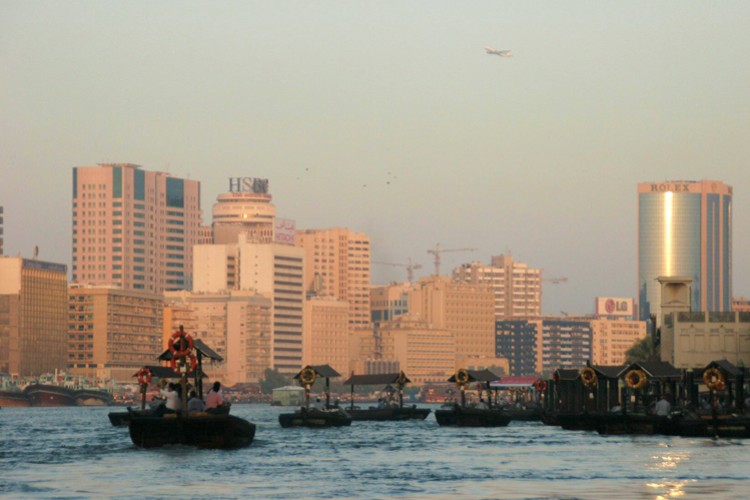
The textile souk in the old Bur Dubai neighborhood:
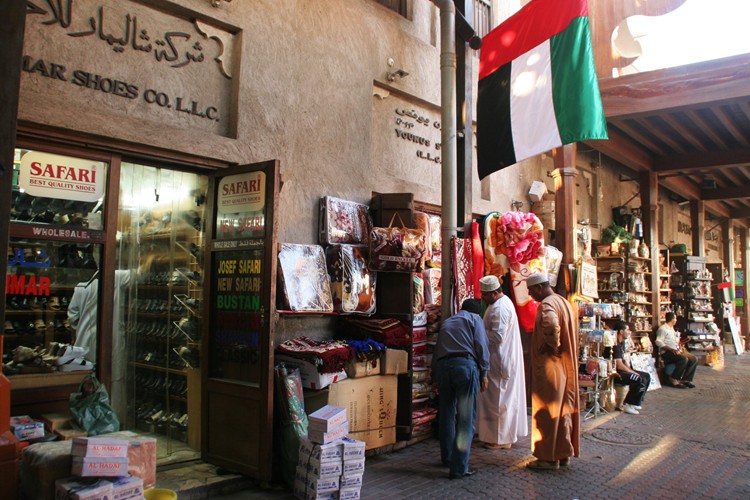
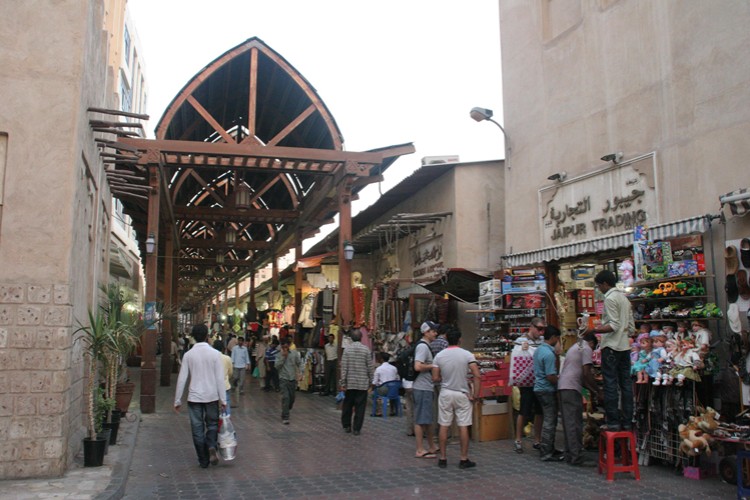
And last one tonight, a minaret during the evening call to prayer:
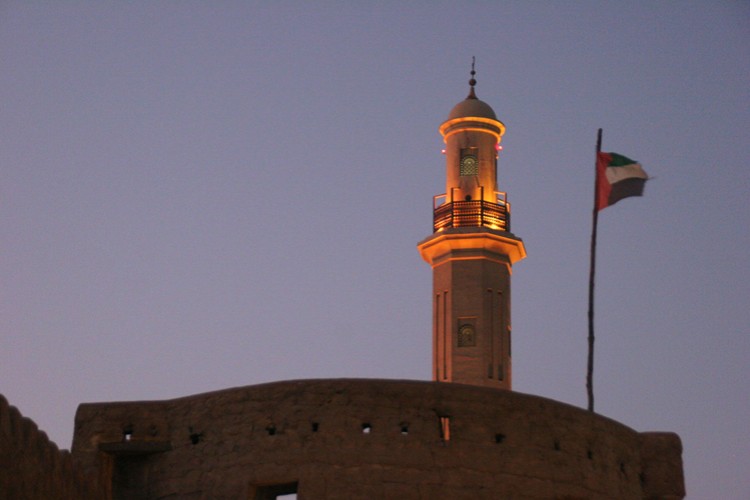
More tomorrow, or possibly Saturday given how much we have to do before then.
After a two-hour walk in the 34°C heat, I actually feel much better. (People who know me can feel free to express surprise and alarm.)
As I mentioned yesterday, spending too much time in a hotel depresses the life out of me. When will I ever again visit Dubai? Probably never. Since the hotel has gone to great lengths to make itself indistinguishable from any other similar hotel in the world, I fled the official corporate tours and hopped the Dubai Metro for Deira, the old part of the city.
Sadly for my scrap-book, and despite having my good camera, I spent nearly the whole time experiencing a place unlike any I'd ever seen rather than photographing it. The best part: a delicious one-dirham loaf of flat bread I bought from a "bakery" that consisted of a guy sitting cross-legged next to a small oven in a shop that couldn't have been two meters on each side. One dirham.
Second best part: hearing about 40 muezzins simultaneously call the faithful to the Asr prayer around 15:20 local time.
I did get some photos; here are two:
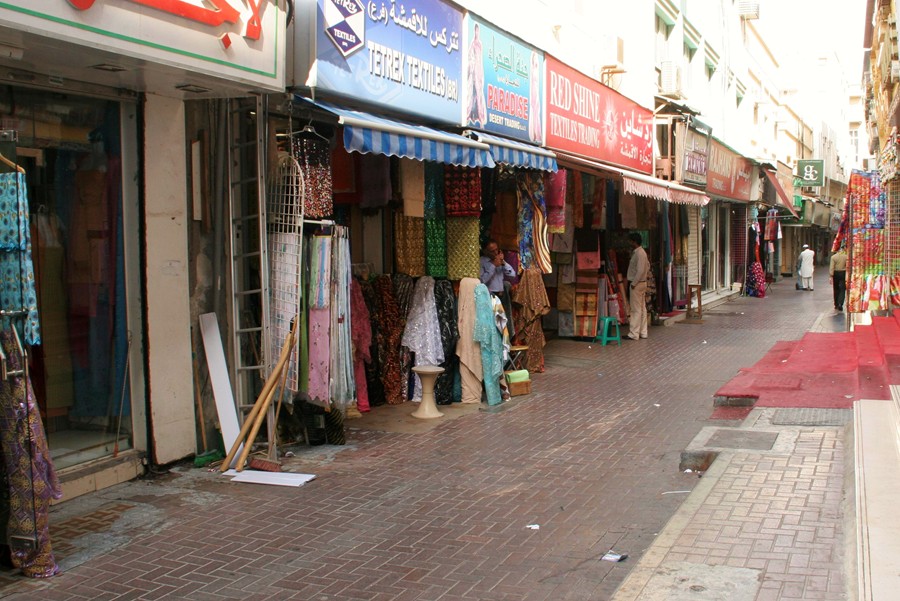
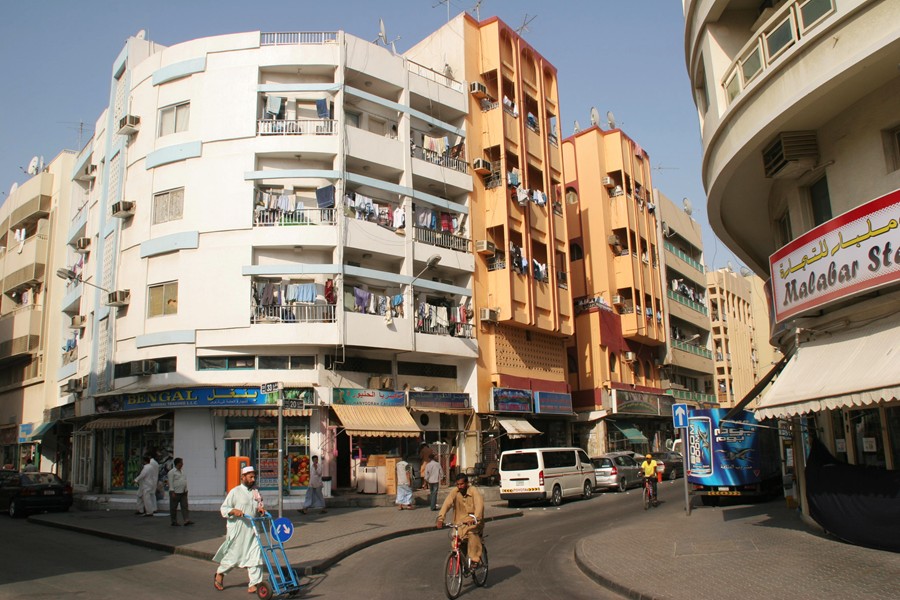
And I found that Dubai has lots of very small, completely fearless cats:
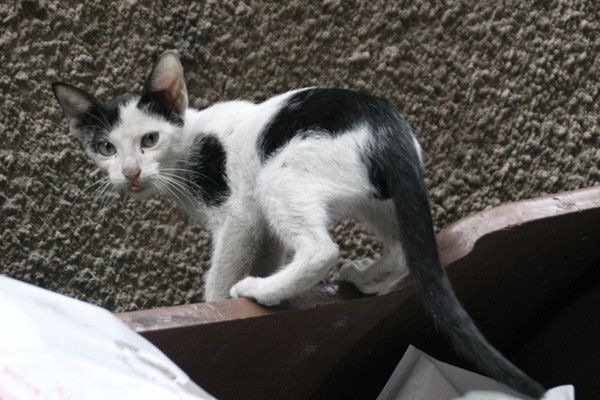
In all, despite sweating through every thread of clothing I wore, and despite feeling completely taken in one bit of bargaining I did (but not in the other, when I was only slightly robbed), I think I spent the afternoon perfectly. I feel much better than I did this morning, and I'll feel even more human in 15 minutes when I get out of the shower....
Is anyone surprised that Hamid Karzai, who brazenly stole the election in Afghanistan not too long ago, managed to get rid of the constitutionally-required runoff scheduled for this week?
It really makes you wonder what we're fighting for over there.
Not one single new. Even though MSNBC sent me this urgent update:
msnbc.com: BREAKING NEWS: Poll: 47 percent of Americans support an increase in troops in Afghanistan.
As I shake my head, I feel impelled to blog the following questions:
- Who did they poll?
- What question or questions did the pollsters ask?
- Why did the people they polled answer one way or another?
- In what way is a poll that shows less than a plurality in any way newsworthy?
- Why did MSNBC feel this important enough to send a news alert?
- What do the people responsible for (5) want to happen as a result of this news alert?
Call me crazy, but I think the U.S. involvement in Afghanistan is so difficult and complicated that I really don't care what popular opinion has to say about it. I think we all deserve more complete information, as this is a republic; but I also think most people haven't got enough of a clue to have an opinion that matters.
Possibly the major news media in the U.S. would have more relevance if they tried. But a news alert like this? Heavens.
Chicago Tribune transport columnist John Hilkevich is shocked—shocked!—this morning to find that Chicago parking tickets are up 26% this year:
The stepped-up enforcement contributed to a $7 million year-over-year increase in parking ticket revenue, which totaled $119.2 million from January through August, the Chicago Department of Revenue reported.
Fines assessed from tickets go to the city's nearly depleted general fund. Revenue collected from a four-fold increase in parking rates this year is kept by Chicago Parking Meters LLC, which paid the city $1.15 billion as part of a 75-year lease to manage on-street parking.
The extra emphasis on enforcement may be contributing to an abundance of parking spaces in many parts of the city where finding street parking was previously luck of the draw.
The clampdown also is discouraging some suburbanites and others to limit their trips to the city.
Discouraging? No kidding. I'm in North Carolina this weekend, where I took advantage of a clothing sale I could have gone to at the same store in Chicago, because even N.C.'s 7.5% sales tax is better than downtown Chicago's 10.5%. (Maine was just too far to go for one suit.)
Mayor Daley fils has done some great things for Chicago, but the biggest things—privitization of public assets, unbelievable taxation, etc.—threaten his legacy. Perhaps now that we don't have the distraction of the 2016 Olympics anymore, he'll turn his energies toward making the city more financially livable again.
The state of Illinois mysteriously doubled its funding request for upgrading the Chicago-St. Louis rail corridor to handle moderately-high-speed trains. First, of the $4.5 bn now requested, only $1.2 bn will go to the actual track upgrades; the state now wants additional funds to build a second track along the route. Second, the upgrades will increase the route's top speed from 126 km/h to only 176 km/h, not exactly a serious rival for other HSR projects worldwide (like, for example, Shanghai's MagLev, which has hit 501 km/h, or France's TGV which routinely travels at 320 km/h.)
Here's Crain's:
"The state's plan is not high-speed rail," says Richard Harnish, executive director of the Midwest High Speed Rail Assn., which advocates a new, 350 km/h Chicago-St. Louis route. "Four hours doesn't change a lot. It's not transformative. What is transformative is two hours."
That would cost $12 billion to $13 billion, he estimates, in line with a detailed, 256-page proposal for a complete Midwest high-speed rail system centered on Chicago that French National Railways, known by its French acronym, SNCF, filed recently with the Federal Railroad Administration.
... With Chicago's status as the nation's rail hub, the state's longtime subsidization of passenger rail and its unprecedented clout with the Obama administration, Illinois is considered likely to get a big chunk of the $8 billion in federal stimulus funds for high-speed rail to be disbursed soon, plus billions more expected in future years as Congress embraces one of the president's top priorities
Is it worth billions to improve rail traffic between Chicago, Milwaukee, St. Louis, and Detroit? I don't think there's an objectively correct answer, but I vote yes. The European experience of moving more people more cheaply (and more quickly) by rail than by air, with significantly lower greenhouse gas emissions, shows that HSR can make a huge difference in a region. But Europe makes different choices than the U.S., and in a democracy it's permissible for one population to decide that its quality of life has a higher price than for another.
Still, two hours to St. Louis? Thirty minutes to Milwaukee? That would be cool.